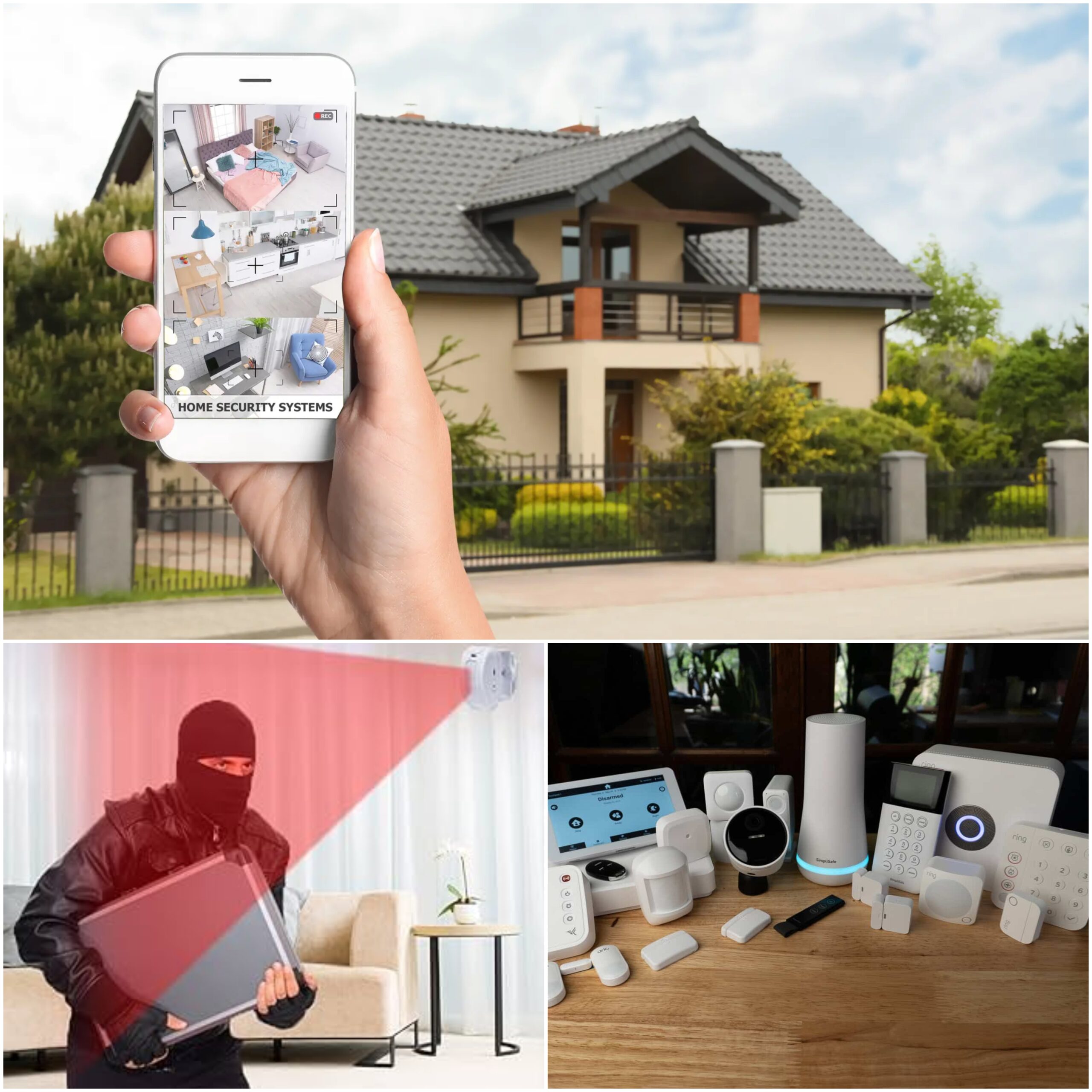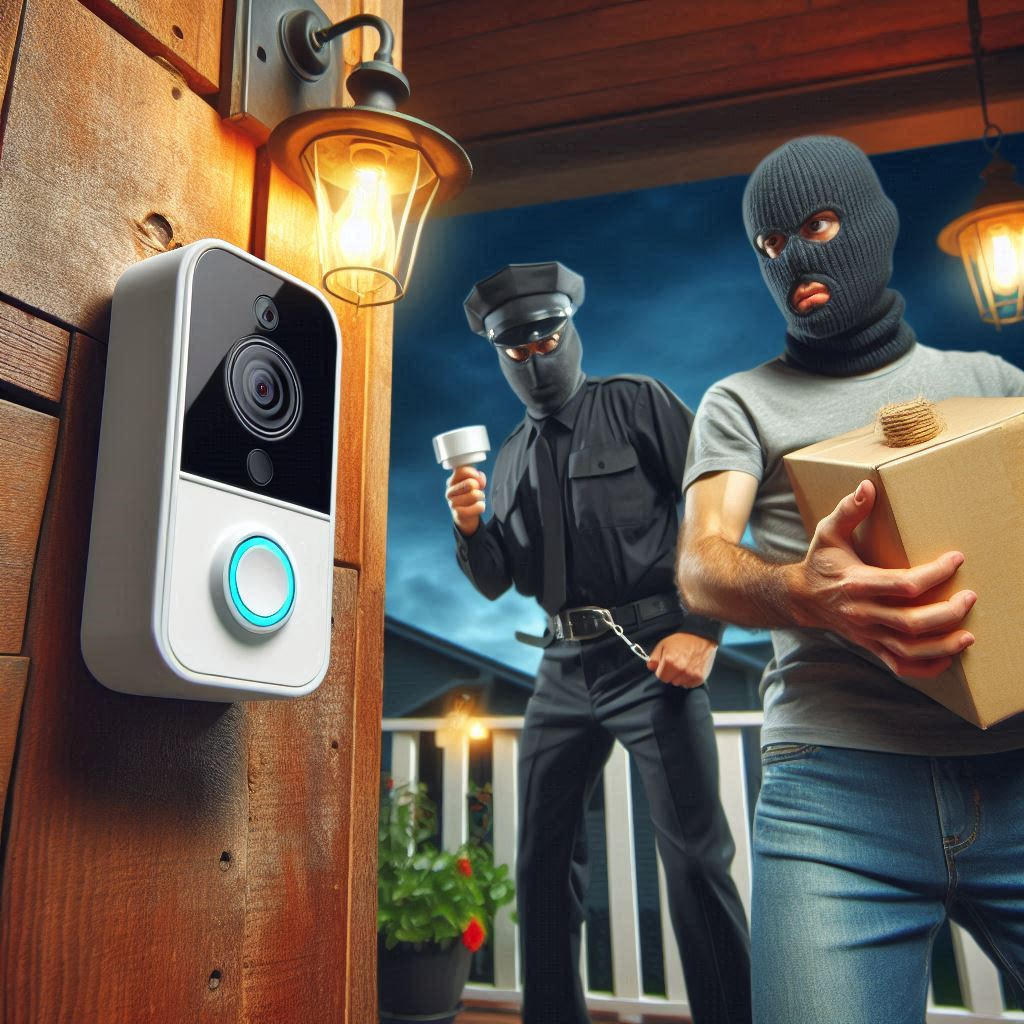One of the most important responsibilities for each homeowner is to keep their house safe with a reliable home security alarm system.
The increased concerns about crime and burglary in the USA have made it even more important to secure your family and belongings.
People are searching for practical solutions to improve their home security in a lot of neighborhoods.
It is now essential to have a reliable home security alarm system because thefts and break-ins are growing more frequent in some places.
Let’s explore the important aspects to take note of while selecting the ideal home security system.
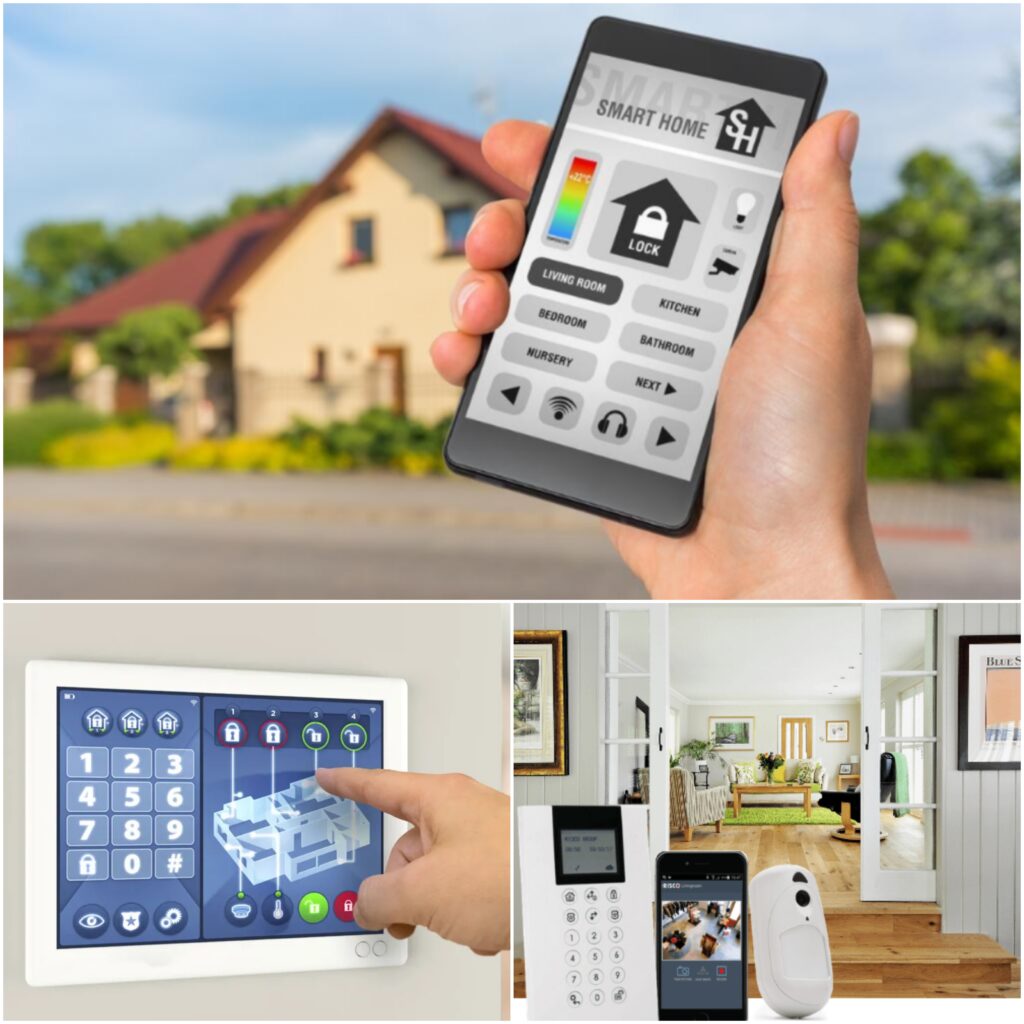
Home Security Alarm System
Need for a Home Security Alarm System
Considering why a security alarm system is necessary is the first step in securing your house.
A) Statistics on Home Invasions in the USA
In the USA, a lot of families worry about home invasions.
Approximately 66% of the more than 2.5 million burglaries that take place annually involve residential buildings, according to studies.
Since homes are more likely to be vacant during the day, a sizable portion of break-ins occur during this time.
These concerning figures highlight just how important it is to have solid safety precautions in place.
B) Benefits of Having a Reliable Alarm System
1. Protecting Your Family and Property
- Potential burglars are kept out of your house by an effective alarm system.
- It can provide you early indications if someone tries to break in and discourage burglars from targeting your property.
- Whether you are at home or away, this guarantees that your family feels safe and protected.
2. Lowering Insurance Costs
- Saving money on your homeowner’s insurance is another benefit of installing a security alarm system.
- Households with monitored alarm systems might receive premium discounts from a number of insurance providers.
- This is because a home that is secured is less likely to be damaged or stolen, which lowers the risk for insurance companies.
3. Customizing the System to Your Neighborhood Risks
Read: The Importance of Privacy Laws in Home Security – What US Homeowners Should Know
- Every neighborhood has unique security requirements.
- You could require advanced features like motion detectors or surveillance cameras in high-crime regions.
- Simpler systems might be enough in more quiet suburbs.
- Selecting an alarm system that tackles the particular hazards in your community is essential to guaranteeing the security of your house.
Types of Home Security Alarm Systems
Evaluating the different types of home security systems is the first step in selecting the best one.
Knowing which type best suits your needs matters most because each has specific features, advantages, and disadvantages.
A) Monitored vs. Unmonitored Systems
1. Monitored Systems
- Features: When the alarm is set off, these systems’ expert monitoring center notifies emergency personnel.
- Pros: Offers fast reaction and protection around-the-clock.
- Cons: Requires a monthly subscription cost, which over time may add up.
2. Unmonitored Systems
- Features: These systems do not use professional monitoring; instead, they use loud alarms or notifications to notify homeowners.
- Pros: It is a more cost-effective choice because there are no monthly costs.
- Cons: You or neighbors are responsible for responding to any alerts, which may cause a delay in emergency response.
B) Wired vs. Wireless Systems
1. Wired Systems
- Differences: Sensors and control panels are connected through physical wires in these systems.
- Advantages: Very reliable, free from outside interference.
- Challenges: Installation might be difficult and may need for expert assistance. If you transfer homes, they become less portable.
2. Wireless Systems
- Differences: These systems communicate amongst their components using cellular networks or Wi-Fi.
- Advantages: Compatible with smart home devices, portable, and easier to install.
- Challenges: If the Wi-Fi is unavailable, there may be signal problems or disruptions.
C) DIY Systems vs. Professionally Installed Systems
1. DIY Systems
- Cost Implications: Since you can install them yourself without hiring a professional, they are usually less expensive.
- Flexibility: Allows you to grow the system over time and adapt it to your needs.
- Challenges: For people without technological expertise, installation may be difficult.
2. Professionally Installed Systems
- Cost Implications: Professional installation prices result in higher upfront expenditures.
- Flexibility: Usually included with professional guidance and an assurance of proper system installation.
- Challenges: Installation scheduling could take some time, and customization options are limited.
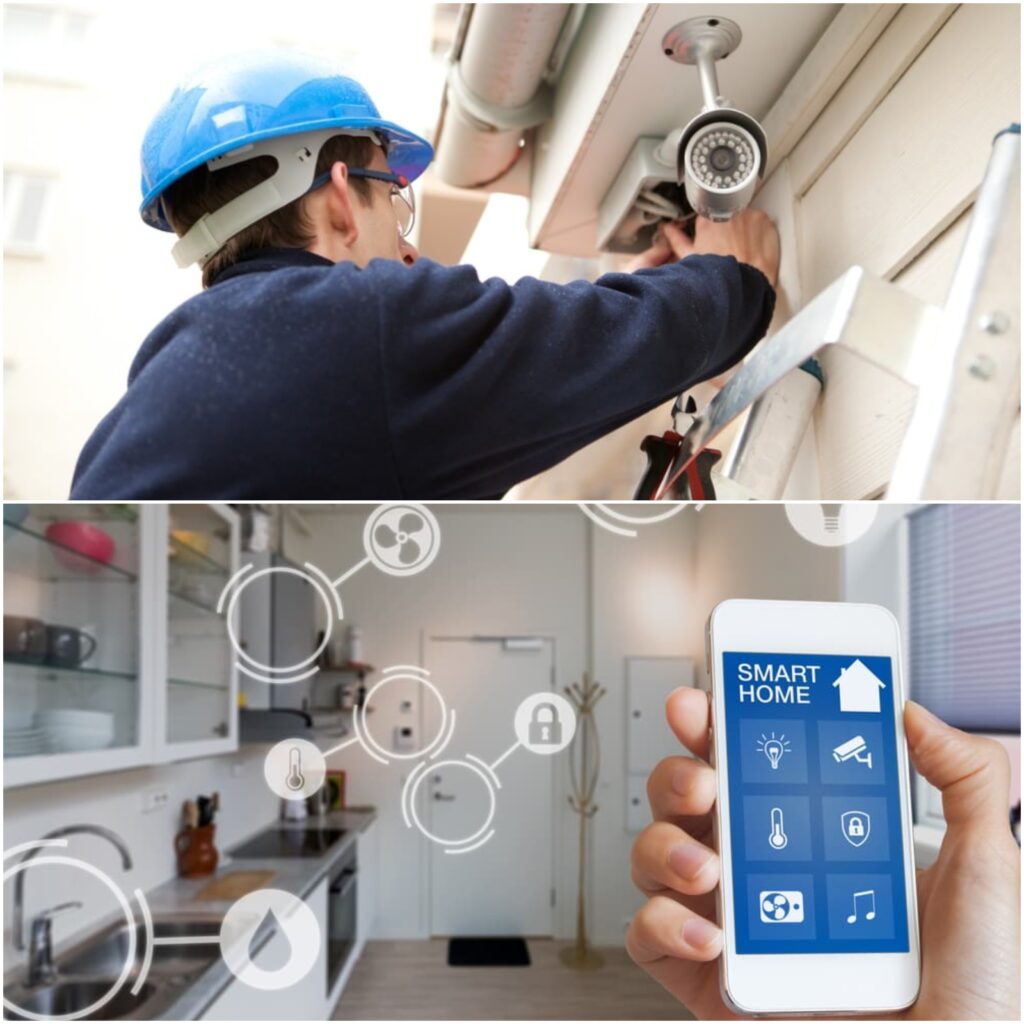
Factors to Consider When Choosing a Home Security Alarm System
Understanding a few important elements is necessary when choosing the best home security alarm system for your house.
You can make sure the system fits your demands and lifestyle by taking these factors into care.
A) Neighborhood-Specific Risks
1. Urban, Suburban, or Rural Areas
Your security needs are greatly influenced by the type of community you reside in.
- Due to increased foot traffic and possible threats, urban areas might need systems with more cameras and motion detectors.
- Home security alarm system that concentrates on access points, like windows and doors, may be helpful in suburban settings.
- Systems with long-range capabilities and reliable outdoor monitoring may be necessary for rural residences.
2. Local Crime Statistics and Trends
Finding out what dangers you are most likely to encounter can be helped by researching local crime rates.
Video doorbells may be necessary in places where package theft is a problem, while neighborhoods with high rates of break-ins may benefit from systems with sophisticated surveillance functions.
B) Budget Constraints
- Initial Costs vs. Monthly Subscription Fees
Some systems, like unmonitored or DIY options, are expensive up front but have no monthly expenses.
While monitored systems frequently have lower upfront costs, professional monitoring requires ongoing subscription charges.
While weighing features against cost, think about what you can afford both now and in the future.
Read: Wireless Home Security Systems for Apartments – Peace of Mind
C) Features and Technology
1. Motion Sensors, Cameras, and Smart Home Integration
Trendy home security alarm system include several features,
- Unusual movements are detected using motion sensors.
- Real-time video feeds and recordings are made possible by cameras.
- Automation or voice commands can be used to operate the system due to integration with smart home appliances.
2. Mobile App Compatibility for Real-Time Alerts
You can monitor and manage your security from any location with systems that have mobile apps.
Even while you are not home, you will get warnings regarding questionable activities, which will give you piece of mind.
D) Ease of Use
- User-Friendly Systems
Seek out user-friendly technologies, particularly if you have elderly or young family members.
Everyone in the home is more likely to be able to use the system efficiently if it has a simple user interface and controls that are easy to figure out.
E) Customer Support and Warranties
- Importance of Reliable Support and Long-Term Warranties
When technical problems occur in home security alarm system, having good customer service can help you avoid becoming frustrated.
A long-term warranty also lowers the chance of unexpected repair expenses and guarantees that your investment is safeguarded.
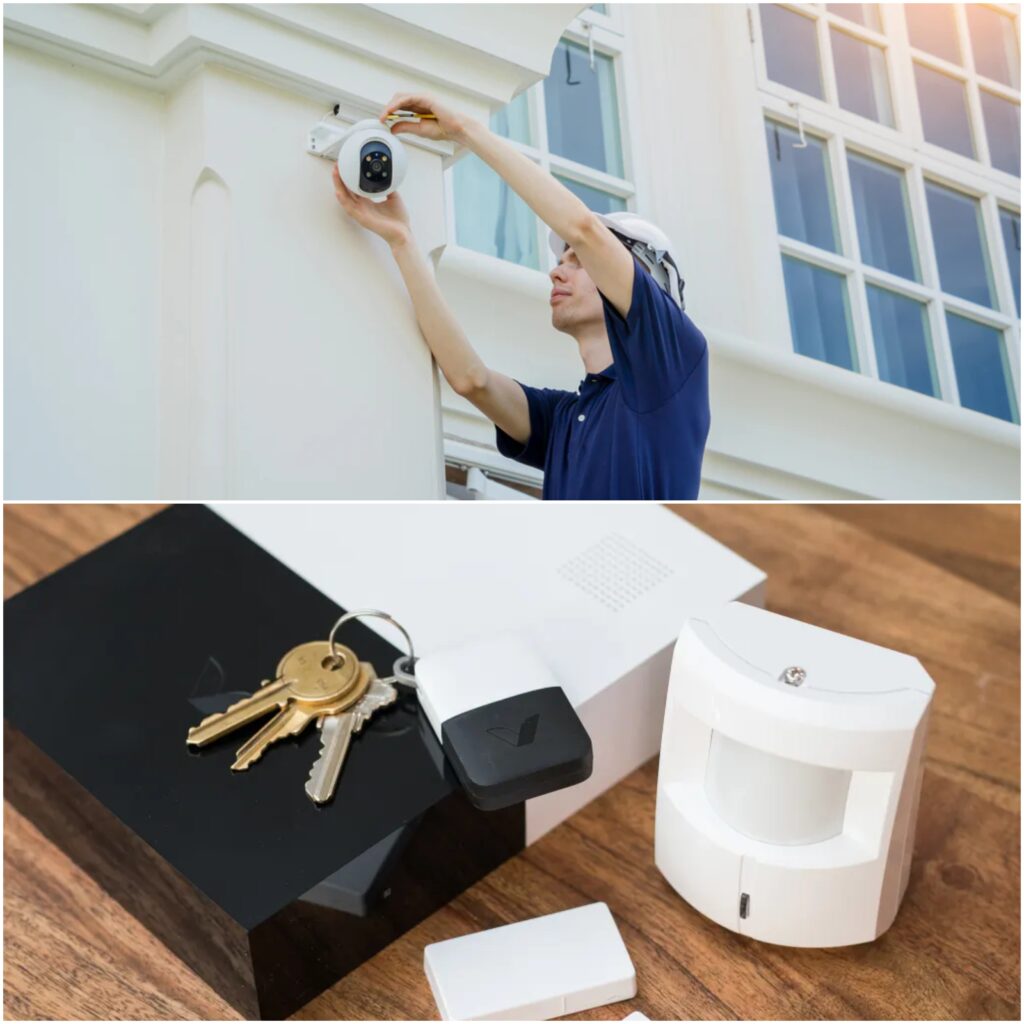
Popular Brands in the USA
Comparing some of the best brands of home security alarm systems in the USA is useful when making your decision.
Each meets distinct needs with its own features, costs, and advantages.
1. ADT
- Recognized for its decades of experience and expert monitoring services
- Provides modern functions like mobile app control and smart home connectivity
- Monthly monitoring prices range from $29.99 to $59.99, while installation costs start at about $99 per month.
- Ideal for homes seeking a full-service, reputable security company
2. Vivint
- Focuses on using high-tech devices to automate smart homes
- Home security alarm system offers specialized security solutions made for your house.
- Equipment starts at $599, and monthly monitoring rates run from $29.99 to $49.99.
- Ideal for tech-savvy households seeking a smart home solution that is integrated
3. SimpliSafe
- No-contract monitoring choices and DIY installation for home security alarm system
- For frequent movers or renters, this portable system is perfect.
- Starting kits start at roughly $250, and monthly monitoring expenses start at $17.99.
- Great for consumers on a tight budget or who want flexibility without commitments
4. Ring
- Home security alarm system equipment that is affordable and mostly focuses on cameras and video doorbells
- Provides an easy-to-use smartphone application for remote surveillance
- Systems range in price from $199 to $20 per month for professional monitoring, which is an optional feature.
- Good for those who value budget and video surveillance
5. Frontpoint
- Provides an option between professional-grade equipment and DIY installation
- A 30-day risk-free trial with outstanding customer support
- Starting packages start at $392, while monthly monitoring fees start at $34.99.
- Good for households seeking a dependable, user-friendly solution
Read: Home Security for Renters – Temporary Solutions for Securing Your Space
Compliance with Local Laws
1. Video Surveillance and Privacy Rules
States in the USA have different laws relating to video monitoring. Installing cameras on your property is generally permitted, but it should not impact upon the privacy of others.
You should stay away of aiming cameras straight onto backyards, neighbors’ houses, or other private areas.
If your system records audio, be mindful that certain states have laws requiring “two-party consent,” which require everyone to agree before recording a conversation.
2. Permits for Alarm Systems
Permits for monitored alarm systems are required in particular states or towns.
These permits can help prevent fines for false alarms and guarantee correct registration with local law enforcement.
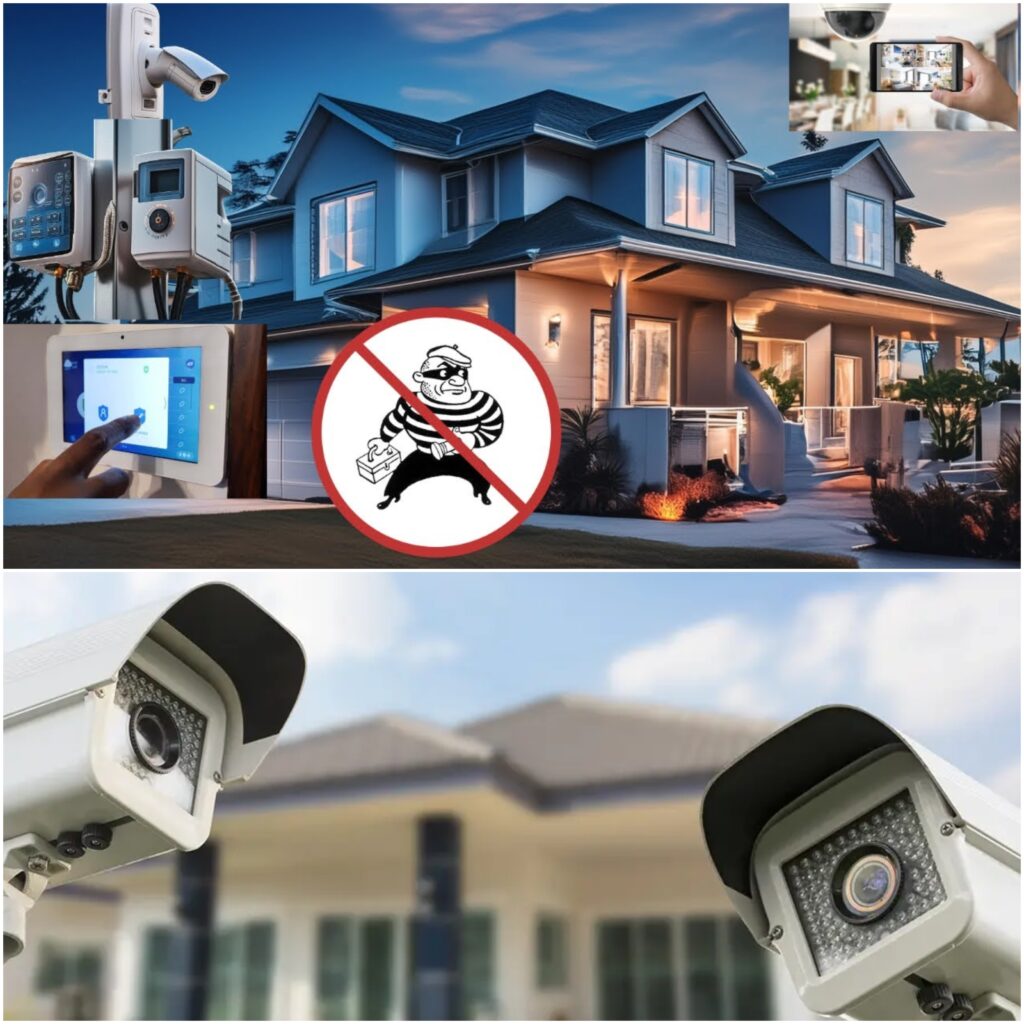
Bottom Line
Act without waiting for a threat. Purchasing a reliable home security alarm system offers you piece of mind in addition to protecting your loved ones. The important thing is to pick a system that fits your demands and budget, whether that means a DIY setup or a professionally managed system.
Read: Safeguarding Your Home – The Role of Doorbell Cameras in Home Security







